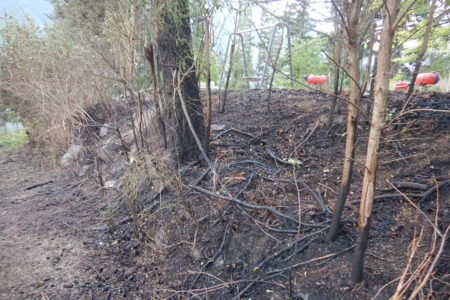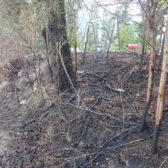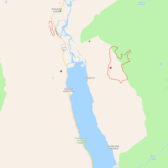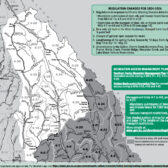Selkirk College TESOL Program Takes Local Teachers Abroad
Two teachers with roots in the West Kootenay have launched new careers abroad with the help of Selkirk College’s Teaching English to Speakers of Other Languages (TESOL) Program.
Prior to taking the TESOL Program, Slocan Valley raised Craig Nichols was a full-time elementary and middle school teacher working in the Yukon Territory. After teaching for 17 years, he enrolled in Selkirk College at age 45.
“A few years ago I hit what I suppose you could call mid-life crisis,” he says. “I had a good job, a good home, and was successful by most standards. But none of it meant much to me, and I felt I needed change. I needed a new adventure in life. I have always had a passion for other languages and cultures, and decided that teaching TESOL was a direction I wanted to take my life in.”
After completing his diploma at Selkirk College, Nichols signed on with Yan Guan Qing Canadian International School in Beijing, China where he now teaches students from Grades 10 to 12, all of whom are learning English as a foreign language.
Opportunities Abound for English Instructors
Selkirk College’s TESOL Program offers both Canadian and international students the certification they need to teach English as a second language. The demand for qualified English language teachers is huge in both Canada and international schools. The program runs from September to December.
Katie Brix found it challenging to secure full-time employment in the Kootenay. Following in her mom’s footsteps she decided to become a teacher straight out of high school. She worked for many years substituting in School District #8 and #20 including schools in Nelson, Castlegar, Trail, Fruitvale, Warfield and Rossland. At age 33, she enrolled in the TESOL Program.
“I have always wanted to teach abroad and I thought having TESOL on my resume would help me find a great job,” says Brix. “When I expanded my job search to the rest of the world, wow, there are so many teaching jobs out there in the world.”
Right after Brix got her TESOL diploma, she was hired at a Canadian International School in Phnom Penh, Cambodia. She has been there for two years and plans to stay for at least one more. Her students come from all different backgrounds such as Malaysian, French, Italian, Japanese, Korean, Swiss, South African, Iranian and Saudi Arabian.
“Even though they are from all over, I have noticed that kids are kids, no matter where you are… I love it,” she says. “Being overseas is a great opportunity to learn new things, see new places and learn about many different cultures. In my spare time, my husband and I have traveled through much of Southeast Asia.”
A World Away from Kootenay Living
For Nichols, the experience has been equally eye-opening and rewarding. Living in the world-class city of Beijing, he makes his way around the city using one of the largest subway systems in the world, visits ultra-modern malls and enjoys plenty of green spaces.
“I live in a newly built apartment building in a newly built subdivision that is heated entirely by natural gas, not coal. It is easy to over-simplify issues when you are sitting in a living room somewhere in the West Kootenays breathing fresh air. Not so easy when you live in a city of 20 million people, more than half of the population of Canada,” he says.
And then there are his students. They are disciplined, polite, friendly and very helpful.
“Well, students are wonderful and you get attached to them no matter where you go. Students here in Beijing are awesome,” he says. “You have to accept that they come from very different educational backgrounds and learn to use their strengths.”
Nichols says the TESOL Program gave him the knowledge he needed to teach another language. There are many theories and approaches with each having their own advantages and disadvantages.
“One of the most important realizations that I came away from the program with is that you can’t expect students to answer complex problems when it is all they can do to understand what you are saying. This is called cognitive load, and I feel it when I speak in Mandarin. I am at a stage where I am often able to understand what is said to me, but this takes all of my energy and concentration,” he says. “It is a humbling experience to learn a new language, one that teaches you a new respect for your students.”
Both Brix and Nichols plan to continue their overseas teaching experience, grateful for the door opened at Selkirk College.
Find out more about TESOL or other International opportunities at selkirk.ca/program/tesol.



























